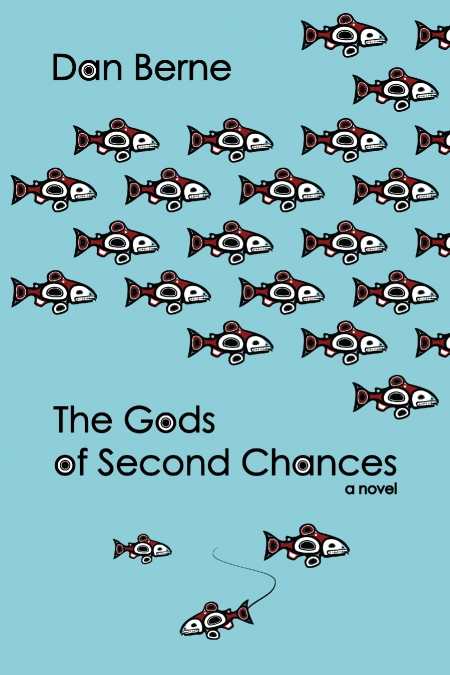The Gods of Second Chances
Alaska’s sense of place and an exploration of family and faith blend to reveal this intriguing narrator: a good man with his share of faults.
With his strong debut novel, Dan Berne takes the story of a longstanding family feud and turns it into a poignant portrait of a man’s struggle to fight the battles of the present and past simultaneously. The elements of the story are familiar in their broad strokes, but Berne mixes them well as he explores themes of faith, fate, and memory.
The story focuses on Ray Bancroft, a man who became a grandfather too young and lost his wife too young, both situations which he blames on his estranged, ex-con, drug-addict daughter, Jenny. As the story opens, he is raising his eleven-year-old granddaughter in a small Alaskan town, taking tourists fishing on his small boat, and preparing for crab season. Ray then gets a letter from Jenny saying that she’s coming to visit, and his life gets hit with one crisis after another. These problems are individually tough but solvable; it’s their all hitting at once that truly turns his life to chaos.
Ray serves as the narrator throughout the story, and the book treats him as a basically good man with his share of faults. Berne does a nice job of showing where his protagonist’s blind spots lie, usually through his dialogue with other characters or how he rationalizes his mistakes. Berne manages the difficult task of foreshadowing elements in a way that makes the story’s outcome seem inevitable while still feeling earned and interesting. Second chances abound throughout the story, from Ray raising his granddaughter in a second crack at parenthood to Jenny’s attempts to get clean and Ray’s multiple attempts to date a local therapist. Faith plays a strong thematic role as well, with Ray’s sailor superstitions (the Buddha statue he rubs every time he takes the boat out, and the collection of deity statues he keeps around his home) and the conflict all this creates when his daughter returns as a born-again Christian.
One of the novel’s biggest strengths is its sense of place. The Alaska of this book feels lived in, and Ray feels like a product of his hometown without becoming a stock character. Things like Ray’s friendships, the bar where he hangs out, and the specifics of his crab-catching routine are rendered in great detail. These elements come together in an impressive debut, one that’s well worth a chance.
Reviewed by
Jeff Fleischer
Disclosure: This article is not an endorsement, but a review. The publisher of this book provided free copies of the book to have their book reviewed by a professional reviewer. No fee was paid by the publisher for this review. Foreword Reviews only recommends books that we love. Foreword Magazine, Inc. is disclosing this in accordance with the Federal Trade Commission’s 16 CFR, Part 255.

